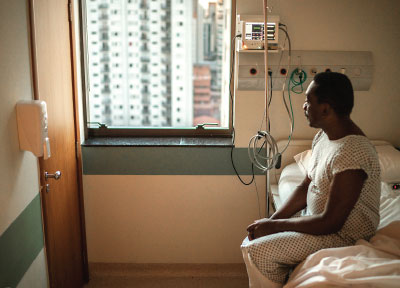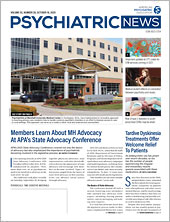The long history of racism in the United States and the day-to-day traumas of racial tension, discrimination, and microaggressions have a lasting impact on the physical and mental health of Black people, said mental health experts and physicians in an August webinar. The webinar was hosted by PsychU, a community and online resource library for mental health sponsored by Otsuka Pharmaceutical Development & Commercialization Inc.
Napoleon Higgins, M.D., a child, adolescent, and adult psychiatrist in Houston, began the discussion with a historical perspective on racism and how the mistreatment of Black people for generations has destroyed their trust in the American health care system. He is the owner of the Bay Pointe Behavioral Health Services and the Southeast Houston Research Group, and CEO of Global Health Psychiatry LLC.
“Because of the history of [racism in] America, we don’t trust America. We question everything we hear,” Higgins said. He added that this played out in a study that found that Black patients who saw a Black physician were nearly 20% more likely to follow the physician’s recommendations than if they had seen a non-Black doctor.
“That’s a disparity right there … where Black people have issues being able to trust their doctors. Then from the doctor’s point of view, the Black patient is less likely to follow recommendations. The mistrust goes all around between both parties,” Higgins said. The mistrust contributes to higher rates of death by natural causes among Black people when they don’t get appropriate care, he said.
Kimone James, M.D., discussed how microaggressions often go unrecognized as a form of racism. She is the medical director at two Fresenius Kidney Care sites and instructs internal medicine residents at Wellstar Health Systems in Marietta, Ga.
“Some people may say, ‘I’m not a racist, I don’t do racist things,’ but as a Black woman, I know that in the workplace alone, microaggressions are prominent, even if it’s someone imitating the way they think Black women swivel their necks,” James said. “That’s the problem with racism. People often think that racism is the Ku Klux Klan, swinging a Confederate flag, or [using] slurs, but sometimes racism is a very simple thing like microaggression.”
Higgins described how repeated exposure to racism in all its forms can take a toll on the body.
“If you stress a person out enough, you’re going to see physical changes. It [involves] learning and memory, where you see instances of racism, and then you see it again, and it all stacks up,” Higgins said. “It increases cortisol, which increases your heart rate and increases your blood pressure because your body is always geared up.”
James said that this stress response contributes to the impact of COVID-19 on the Black community.
“When people ask me why more Black people are dying of coronavirus, I think, ‘Well, look at our poor bodies right now,’” she said. “We have increased stress from racial tension, increased lack of medical resources, and more untreated diseases, and you throw on top of it poor air quality [in Black neighborhoods] … and jobs where you’re exposed to toxins because you’re doing factory work. Are those bodies suitable [for defending against] any disease, not to mention coronavirus?”
Betsy Bennett, Ph.D., addressed white people and what they can do to combat racism as individuals. She is a clinical health psychologist at Clarity Consulting, a consultant on cultural competency, and adjunct faculty at the Adams School of Dentistry at the University of North Carolina at Chapel Hill.
“The number one thing you can do is be curious, be open-minded, and learn as much as you can. Try not to be embarrassed about what you don’t know because all that does is get in the way of you learning more,” Bennett said. ■
“Impact & Trauma of Racism” is posted
here.

